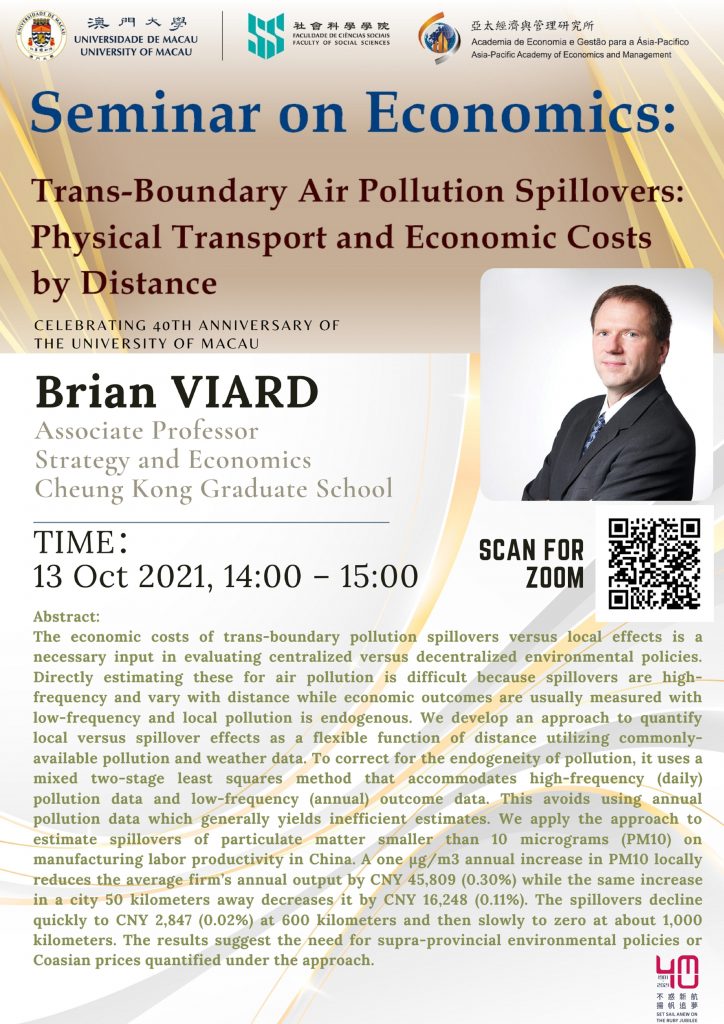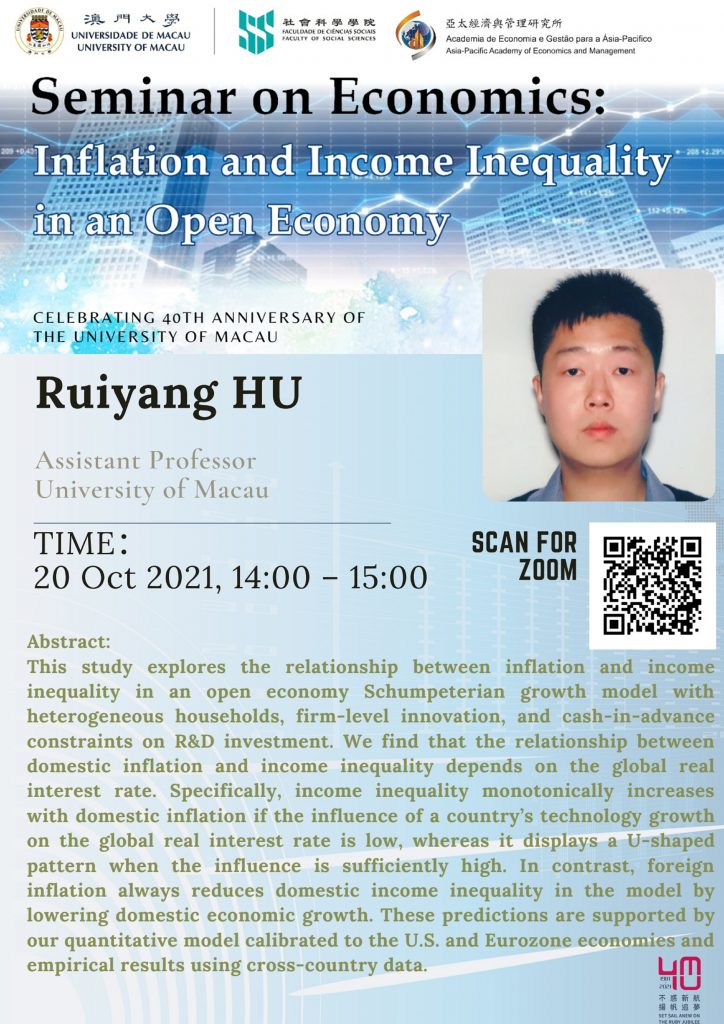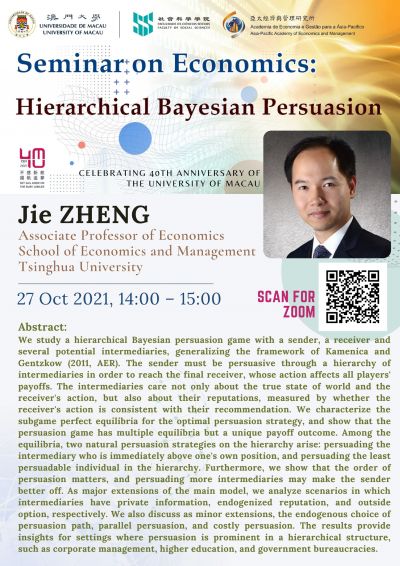
Trans-Boundary Air Pollution Spillovers: Physical Transport and Economic Costs by Distance by Brian VIARD
Date & Time : 13/10/2021, 14:00 – 15:00
Language : English
Zoom Link: https://umac.zoom.us/j/93662278464?pwd=S3ZMTGE3cUpzclM4aUxBSUxxZUpxdz09

Inflation and Income Inequality in an Open Economy by Ruiyang HU
Date & Time : 20/10/2021, 14:00 – 15:00
Language : English
Zoom Link: https://umac.zoom.us/j/91656780688?pwd=c2pJUGNEcWZrdU54MHBhMjRORlBJQT09

Hierarchical Bayesian Persuasion by Jie ZHENG
Date & Time : 27/10/2021, 14:00 – 15:00
Language : English
Zoom Link: https://umac.zoom.us/j/98398530344?pwd=cEc5UGwyT0dNTG5qYVFPK1c0SGNoQT09

